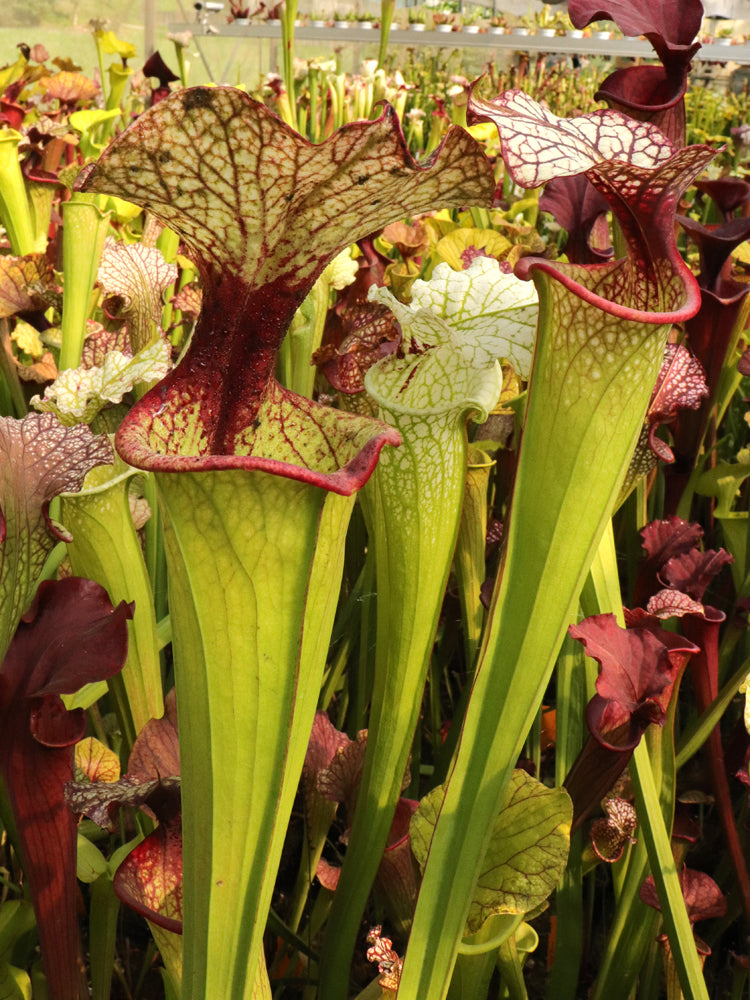Giardino Carnivoro
S.x 'Leah Wilkerson' x 'Adrian Slack' Clone G Srba
S.x 'Leah Wilkerson' x 'Adrian Slack' Clone G Srba
Hybrid sarracenias are the result of pollinations between two sarracenias of different genetics.
The acronym “X” determines the crossing between two species of which the first plant is the plant that provided the ovary while the second plant is the pollen donor.
Example: S. x alata (Mother) x flava (Father)
If a sarracenia is self-pollinated it is named Sarracenia
Example: Sarracenia alata x “Self”
If a sarracenia is pollinated by insects and no artificial intervention has been taken, it is named S. x “OP”
Example: Sarracenia alata x OP (Open Pollinated)
Growing Tips
Growing Tips
The sarracenia catches many flies, wasps, bedbugs and other large insects
Soil: Blonde acid sphagnum peat with perlite
IN SUMMER: Keep the plant exposed to the sun for many hours a day, which is essential for it to grow healthy and colourful. It does not suffer from the summer heat if the water level in the saucer is kept high.
It should never be fertilized.
IN WINTER Keep the plant outside in a sunny and wind-protected position. Just avoid prolonged frosts. You can cut dry and damaged leaves at the base. In spring it will have beautiful flowering and lots of new leaves.
To have even higher traps you can cut the flower as soon as it appears at 5 cm in height. The peat must be completely changed every two or three years.
Watering
Watering
The best water is rain or distilled or reverse osmosis.
It must be free of limestone residues and very tender and acidic.
Sarracenia loves a high water level in the saucer.
The traps should not be filled with water.
In summer the ideal level is constant up to half the vase.
In winter, a constant cm or two will be enough.
It is not necessary to vaporize the plant but in the height of summer it can be refreshed with evening rain, always with low-calcareous water.


